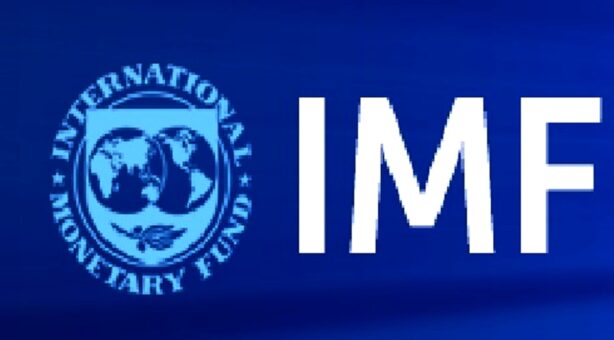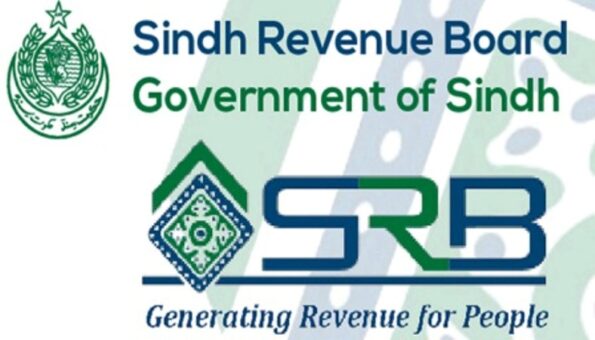KARACHI: A top official of Federal Board of Revenue (FBR) has informed the office bearers of Karachi Chamber of Commerce and Industry (KCCI) that a tax relief package for business community was under consideration in order to dilute the adverse impact of coronavirus pandemic (COVID-19).
(more…)Author: Mrs. Anjum Shahnawaz
-

Textile export falls by 18.4pc as COVID-19 affects global economies
KARACHI: The coronavirus pandemic (COVID-19) is taking its toll on Pakistani textile export as it fell by 18.40 percent in March 2020 as compared with previous month, according to data released by Pakistan Bureau of Statistics (PBS) on Friday.
(more…) -

Import of old, used cars plunges by 69 percent in nine months
KARACHI: The import of used and old cars witnessed sharp decline of 69 percent during first nine months (July-March) of current fiscal year due to imposition of condition regarding payment of duty and taxes through foreign exchange.
The import of used and old cars in Completely Built Unit (CBU) condition declined by 69 percent to $64.8 million during July – March 2019/2020 as compared with $209.03 million in the corresponding period of the last year, according to data released by Pakistan Bureau of Statistics (PBS) on Friday.
The commercial import of used or old cars is prohibited under prevailing laws of the country. However, in order to facilitate expatriate Pakistanis the government allows incentives to bring cars into the country.
The Federal Board of Revenue (FBR) allowed Pakistani nationals residing abroad including dual nationals, can import old and used vehicles into Pakistan under these schemes, included: Personal Baggage; Gift Scheme; and Transfer of Residence.
The cars not older than three years and other vehicles not older than five years can be imported under these schemes.
In the past these schemes were misused and bulk of imported cars brought into the country.
However, the ministry of commerce in February 2019 amended Import Policy Order, 2016 and made it mandatory for clearance of cars through foreign exchange, which should be certified by banks.
Since then the clearance of the cars has come to a standstill. Customs authorities said that a large number of imported cars were at the port but importer had failed to make payment as per procedure prescribed by the ministry of commerce.
However, in November 2019 a meeting of Economic Coordination Committee (ECC) decided to allow payment for duty and taxes for customs clearance of imported cars through local resources with condition that if foreign exchange becomes short due to currency fluctuations or change in duty and tax rates.
The overall import of CBU vehicles during first nine months of current fiscal year fell 59 percent. The import of heavy vehicles including buses and trucks has declined by 39.32 percent. While import of CBU motorcycles fell by 74 percent.
On the other hand the import of cars as Completely Knocked Down (CKD) condition also fell by 43 percent to $343.42 million during July – March 2019 as compared with $611.38 million in the same period of the last fiscal year.
Massive depreciation in the local currency during past couple of years had increased the cost of local car manufacturers. Further, the rates of locally assembled cars for end consumers also jumped up sharply.
These factors have reduced the productions of locally manufactured cars and subsequently reduced the import of cars in CKD condition.
The overall import of vehicles in CKD fell by 42.16 percent to $545 million during first nine months of 2019/2020 as compared with $942 million in the corresponding period of the last fiscal year.
-

FPCCI praises central bank for reducing policy rate to nine percent
KARACHI: Federation of Pakistan Chambers of Commerce and Industry (FPCCI) has praised the central bank for reducing policy rate by two percent to nine percent from 11 percent.
In a statement issued on Friday, Mian Anjum Nisar, President, FPCCI appreciated reduction in the policy rates by 2 percent from 11 percent to 9 percent by State Bank of Pakistan (SBP) in view of the current situation and banks should follow SBP immediately accordingly.
The reduction in policy rate by 4.25 percent in a month is commendable step of the government in the present situation that will positively affect cost of doing business and will encourage Investors and Industrialists to make new investment in the country.
The president FPCCI also said that the pandemic COVID-19 has affected the global economy and pushed to the depression resulting contraction in the economic activities and a threat to unemployment.
He told that the expected long-terms affects are more severe than the previous great depression losses.
He apprehended that the economy of Pakistan will contract by 1.5 percent due to COVID-19 in the current fiscal year and the government has to take immediate measures to protect the trade and industry that will ensure future employment, economic growth and socio-economic prosperity.
Present available resources must be utilized to safeguard the trade and industry so that our industry could be able to compete with global world after this crisis.
The whole economy is in lock down situation since last 26 days, and will continue for 3 months which is building liquidity crunch and our policies should address post CORONA situation so that business can run and jobs can be secured.
He also said that affected countries have considerably reduced interest rates and Pakistan’s trade and industry is also in a dire need to further reduction in the interest rate to nearly 5 percent so it could be sustain under the prevailing conditions.
He further stated that foreign exchange reserves are increasing due to assistance from IMF, World Bank, Asian Development Bank and other friendly countries so SBP also control and manage the market more effectively particularly the exchange rates.
FPCCI chief emphasized that the SBP Scheme of loans to industry for salaries payment of employees should be interest free and the government should also contribute in it as it will be a liability to payback with interest for the period when industry is closed and workers are at homes.
The scheme needs to be revisited with the consultation of the stakeholders who are facing multidimensional problems and are able to guide the policy maker under this terrible situation.
-

Equity market hits upper cap on surprise rate cut, IMF loan approval
KARACHI: The equity market witnessed unprecedented surge by 1,502 points 4.8 percent over the previous day on Friday after recording upper cap during the day on surprise rate cut and IMF loan approval
The benchmark KSE-100 index of Pakistan Stock Exchange (PSX) closed at 32,831 points as against 31,329 points showing an increase of +1502 points.
Analysts at Arif Habib Limited said that the market saw an unprecedented surge today that led to market halt at 10:52 PM for 60mins.
A host of factors, all positive, from SBP’s surprise rate cut to deferment of G20 debt and IMF provided COVID-19 relief fund contributed to the ascend in index.
The benchmark index realized an increase of 1927 points during the session. Market also realized 300 million mark for shares traded.
Banking sector stocks that were not supposed to perform due to NIM suppression also saw increase in rates touching recent highs, but subsided by the end of session.
Throughout the session, Cement, Fertilizer, Steel, Pharma sectors traded at upper circuit, primarily for the reason that these sectors were largely leveraged and the rate cut helped reduce the incidence of financial charges.
On the other hand, WTI priced dropped during the session to $18.05 during the session without denting the sentiment for local oil & gas scrips.
Banking sector contributed the most to the volumes with 53.2 million shares, followed by Cement (41.4 million) and Power (29 million). Among scrips, KEL topped the volumes with 22.9 million shares, followed by HASCOL (21.3 million) and BOP (19.6 million).
Sectors contributing to the performance include Fertilizer (+323 points), Cement (+187 points), E&P (+171 points), Power (+149 points) and O&GMCs (+98 points).
Volumes increased significantly from 118.9 million shares to 302.4 million shares (+54 percent DoD). Average traded value also increased by 84 percent to reach US$ 52.6 million as against US$ 28.5 million.
Stocks that contributed significantly to the volumes include KEL, HASCOL, BOP, UNITY and FCCL, which formed 32 percent of total volumes.
Stocks that contributed positively to the index include ENGRO (+144 points), HUBC (116 points), FFC (+112 points), LUCK (+88 points) and DAWH (+66 points).
Stocks that contributed negatively include BAHL (-24 points), ABL (-18 points), BAFL (-6 points), MEBL (-5 points), and SHFA (-5 points).
-

Rupee appreciates sharply on rate cut, IMF loan approval
KARACHI: The Pak Rupee witnessed significant appreciation against dollar on Friday owing to cut in discount rate and $1.38 billion loan approval by the IMF.
The rupee gained Rs3.30 to close at Rs163.58 to the dollar from previous day’s closing of Rs166.88 in interbank foreign exchange market.
Currency dealers said that the rupee witnessed massive gain against dollar as the State Bank of Pakistan (SBP) cut policy rate by 200 basis points to nine percent.
The central bank reduced the policy rate third time in last one month considering significant adverse effect of coronavirus on the economy,
The sources said that the rate cut would help in improving economic activities.
The Executive Board of the International Monetary Fund (IMF) a day earlier approved the disbursement of $1.386 billion under the Rapid Financing Instrument to address the economic impact of the Covid-19 shock.
The currency dealers said that the rupee may witness further appreciation in coming days due to falling international oil prices and reduction in non-oil imports.
-

PBC demands suspending collection of Sindh infrastructure cess
KARACHI: Pakistan Business Council (PBC) has demanded the Sindh government of suspending collection of infrastructure to provide relief the industrial and businesses in the wake of coronavirus outbreak.
In a letter sent to Sindh Chief Ministry Syed Murad Ali Shah, the PBC demanded the suspension of collections under the Sindh Development and Maintenance of Infrastructure Cess Act, 2017.
The PBC is composed of country’s leading employers, including multinationals. PBC members, directly and through members in their value chains provide employment to more than two million individuals.
The COVID-19 pandemic has severely impacted liquidity of businesses in Pakistan including those operating in Sindh.
While PBC members are committed to retaining their direct employees and are also taking steps to ensure that livelihoods of employees in their supply chain are not adversely impacted, they do however, look towards governments for the maximum help to ensure that liquidity is available to pay these unusual expenses.
“We are therefore writing to request you to initially suspend all collections under the Sindh Development & Maintenance of Infrastructure Cess Act 2017 till June 30, 2020. The exemption may be reviewed in June and extended if the crisis persists,” it said.
The government of Punjab on April 02, announced the suspension of collections under the Punjab Infrastructure Development Cess Act 2015 till June 30th, 2020.
The PBC hopes for a similar gesture from the Government of Sindh and requests that the announcement for the suspension of collections under the Sindh Development & Maintenance of Infrastructure Cess Act 2017 be made at the earliest.
-

IMF approves $1.38 billion for Pakistan to address economic impact of COVID-19 shock
KARACHI: The Executive Board of the International Monetary Fund (IMF) approved the disbursement of $1.386 billion under the Rapid Financing Instrument to address the economic impact of the Covid-19 shock, according to statement received here late Thursday.
With the near-term outlook deteriorating sharply, the authorities have swiftly put in place measures to contain the impact of the shock and support economic activity. Crucially, health spending has been increased and social support strengthened, it added.
As the impact of the COVID-19 shock subsides, the authorities’ renewed commitment to implement the policies in the existing EFF will help support the recovery and strengthen resilience.
The Executive Board of the International Monetary Fund (IMF) approved a purchase of Pakistan under the Rapid Financing Instrument (RFI) equivalent to SDR 1,015.5 million (US$ 1.386 billion, 50 percent of quota) to meet the urgent balance of payment needs stemming from the outbreak of the COVID-19 pandemic.
While uncertainty remains high, the near-term economic impact of COVID-19 is expected to be significant, giving rise to large fiscal and external financing needs. The IMF support will help to provide a backstop against the decline in international reserves and provide financing to the budget for targeted and temporary spending increases aimed at containing the pandemic and mitigating its economic impact.
The IMF remains closely engaged with the Pakistani authorities and as the impact of the COVID-19 shock subsides will resume discussions as part of the current EFF.
Following the Executive Board discussion, Geoffrey Okamoto, First Deputy Managing Director and Acting Chair, made the following statement:
“The outbreak of Covid-19 is having a significant impact on the Pakistani economy. The domestic containment measures, coupled with the global downturn, are severely affecting growth and straining external financing. This has created an urgent balance of payments need.
“In this context of heightened uncertainty, IMF emergency financing under the Rapid Financing Instrument provides strong support to the authorities’ emergency policy response, preserving fiscal space for essential health spending, shoring up confidence, and catalyzing additional donor support.
“In response to the crisis, the government of Pakistan has taken swift action to halt the community spread of the virus and introduced an economic stimulus package aimed at accommodating the spending needed to tackle the health emergency and supporting economic activity. Crucially, the authorities are increasing public health spending and strengthening social safety net programs to provide immediate relief to the most vulnerable. Similarly, the State Bank of Pakistan has adopted a timely set of measures, including a lowering of the policy rate and new refinancing facilities, to support liquidity and credit conditions and safeguard financial stability. In this context, the authorities’ policies should be targeted and temporary.
“As the crisis abates, the authorities’ renewed commitment to the reforms in the existing Extended Fund Facility—in particular those related to fiscal consolidation strategy, energy sector, governance, and remaining AML/CFT deficiencies—will be crucial to entrench resilience, boost Pakistan’s growth potential, and deliver broad based benefits for all Pakistanis.
“Expeditious donor support is needed to close the remaining balance of payments gap and ease the adjustment burden.”
-

SRB extends date for filing sales tax return up to April 30
KARACHI: Sindh Revenue Board (SRB) on Thursday extended the last date for filing sales tax returns for the month of March up to April 30, 2010 to facilitate taxpayers in the wake of ongoing lockdown to prevent coronavirus outbreak.
The SRB issued a circular to extend the date for filing sales tax return for month of March 2020 up to April 30, 2020 from the exiting due date of April 18, 2020.
The SRB also extended the date for payment of sales tax on services for the month of March 2020 up to April 27, 2020 from April 15, 2020,
The Karachi Tax Bar Association (KTBA) requested the provincial tax authority to extend the date for filing monthly returns.
The tax bar said that due to ongoing lockdown for prevention of coronavirus outbreak, the grant of date extension would help the taxpayers in discharging their liabilities.
-

Tax collection from phone services jumps up 630 percent
ISLAMABAD: The collection of withholding tax from phone subscribers registered a phenomenal increase of 630 percent to Rs27 billion during first half of the current fiscal year, according to data made available to PkRevenue.com
The sources in Federal Board of Revenue (FBR) told that the restoration of withholding tax on phone usage by the Supreme Court of Pakistan (SBP) helped the tax authorities to generate substantial amount during the period under review.
The data revealed that the FBR collected withholding tax to the tune of Rs27 billion during first six months (July – December) 2019/2020 as compared with Rs3.7 billion collection in the corresponding period of the last fiscal year.
The FBR collects withholding tax on telephone usage under Section 236 of Income Tax Ordinance, 2001 from telephone subscribers and internet.
The tax rate is zero percent on monthly bill up to Rs1,000. However the bill exceeding Rs1,000 shall liable to tax rate at 10 percent.
In case subscriber of internet, mobile telephone and pre-paid internet or telephone card the tax rate shall be 12.5 percent of the amount of bill or sales price of internet pre-paid card or prepaid telephone card or sale of units through any electronic medium or whatever form.
The phone companies preparing bills or selling prepaid cards are responsible to collect withholding tax on behalf of the FBR from telephone subscribers, internet subscribers, purchaser of internet prepaid cards.
The withholding tax collected from phone usage is adjustable against the taxpayers’ liability.
The FBR incurred a loss of Rs55 billion in 2018/2019 due to suspension of withholding tax on telecommunication services by the Supreme Court of Pakistan.
